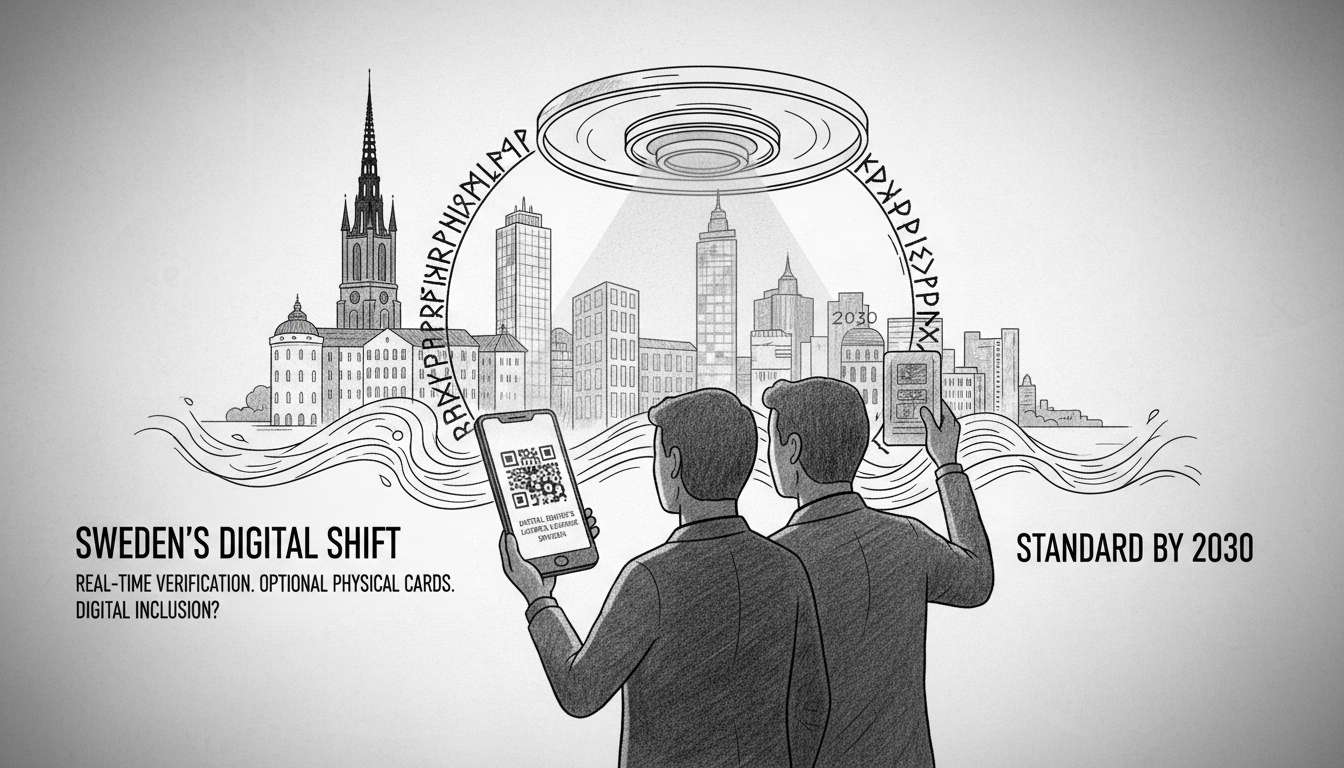Sweden will introduce digital driver's licenses as standard documentation starting in the third quarter of 2030. The Swedish Transport Administration confirms the transition while emphasizing that physical cards will remain available as an option. This represents a major shift in how Swedes carry and verify their driving credentials.
Pär-Ola Skarviken, an investigator at the Transport Administration, explained the new system. He said drivers will download an official app when it becomes available. The app will feature BankID login for security. It displays a digital version of the Swedish driver's license with a QR code that police or other officials can scan to verify authenticity in real time.
The key advantage involves automatic updates. When the Transport Administration makes changes to the vehicle registry, the digital license updates immediately. This applies to renewals or if authorities revoke driving privileges. No more waiting for new physical cards in the mail.
But the digital approach presents challenges too. Digital exclusion remains a genuine concern. Skarviken noted the system requires smartphone access. People must carry their device and be able to display the digital information when requested. This could disadvantage elderly drivers or those with limited technology access.
Sweden's push for digital licenses aligns with broader societal digitalization trends. Officials want driving documentation to match current digital norms. The country already uses digital identification systems extensively for banking and government services.
This transition reflects Sweden's position as one of Europe's most digitally advanced nations. The country has systematically replaced physical documents with digital alternatives over the past decade. Driver's licenses represent the next logical step in this digital transformation.
International visitors and new residents should note the timeline. The change happens gradually with full implementation by 2030. Foreign driver's licenses will likely follow different rules initially. The system primarily targets Swedish license holders first.
The practical implications are substantial. Traffic stops become more efficient with instant verification. Lost or stolen licenses become less problematic since the digital version remains accessible. But battery life and phone functionality now become critical for legal driving documentation.
Sweden joins a small group of countries testing digital driver's licenses. The approach represents both convenience and potential vulnerability. While most Swedes embrace digital solutions, the mandatory nature of smartphone dependence raises legitimate questions about accessibility and emergency situations.

